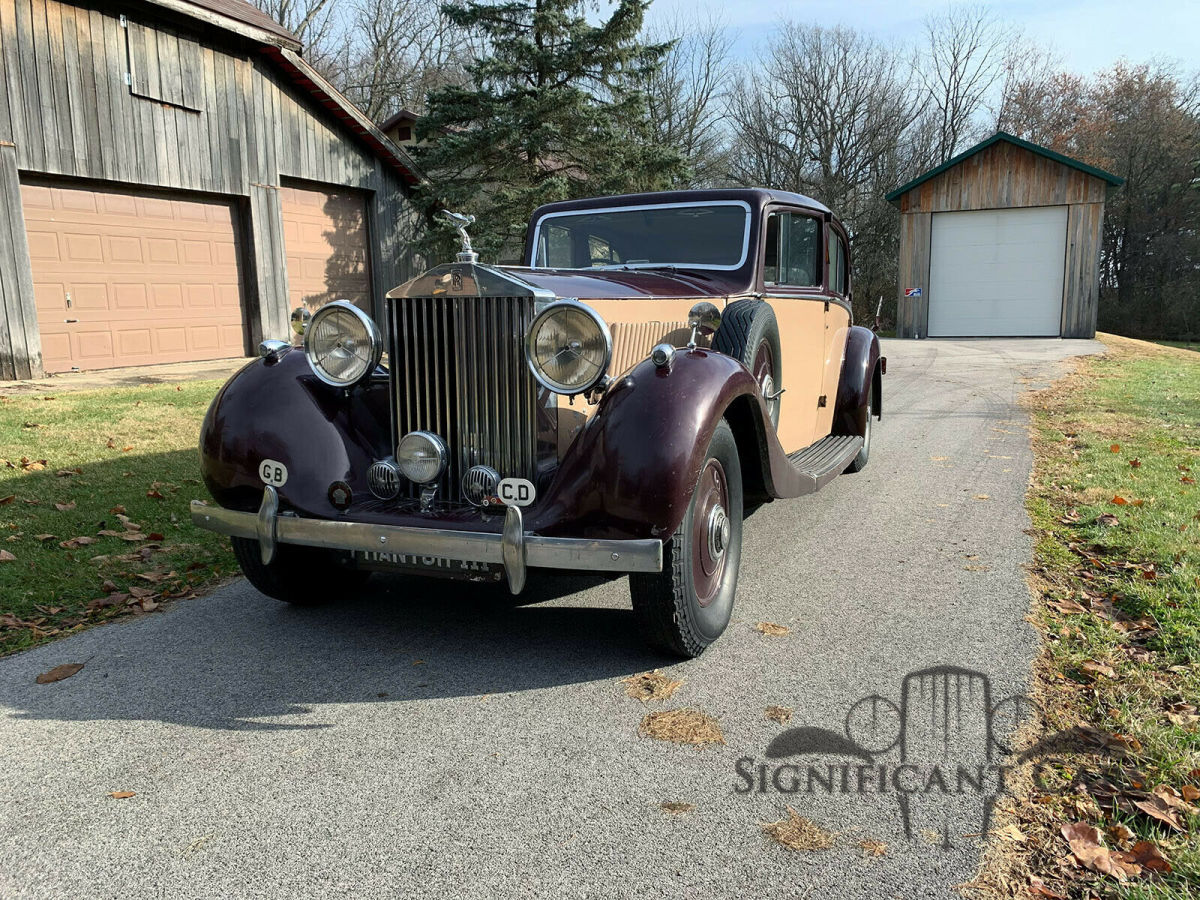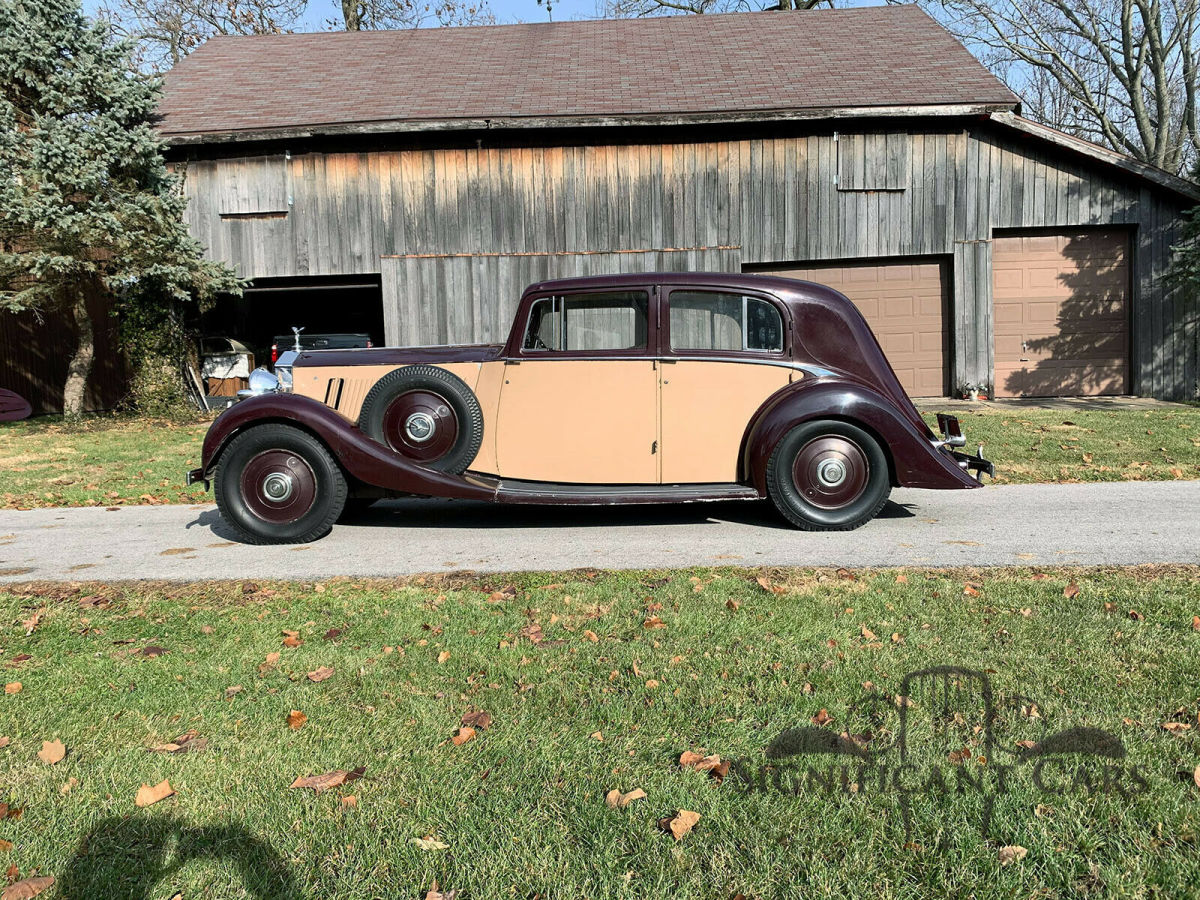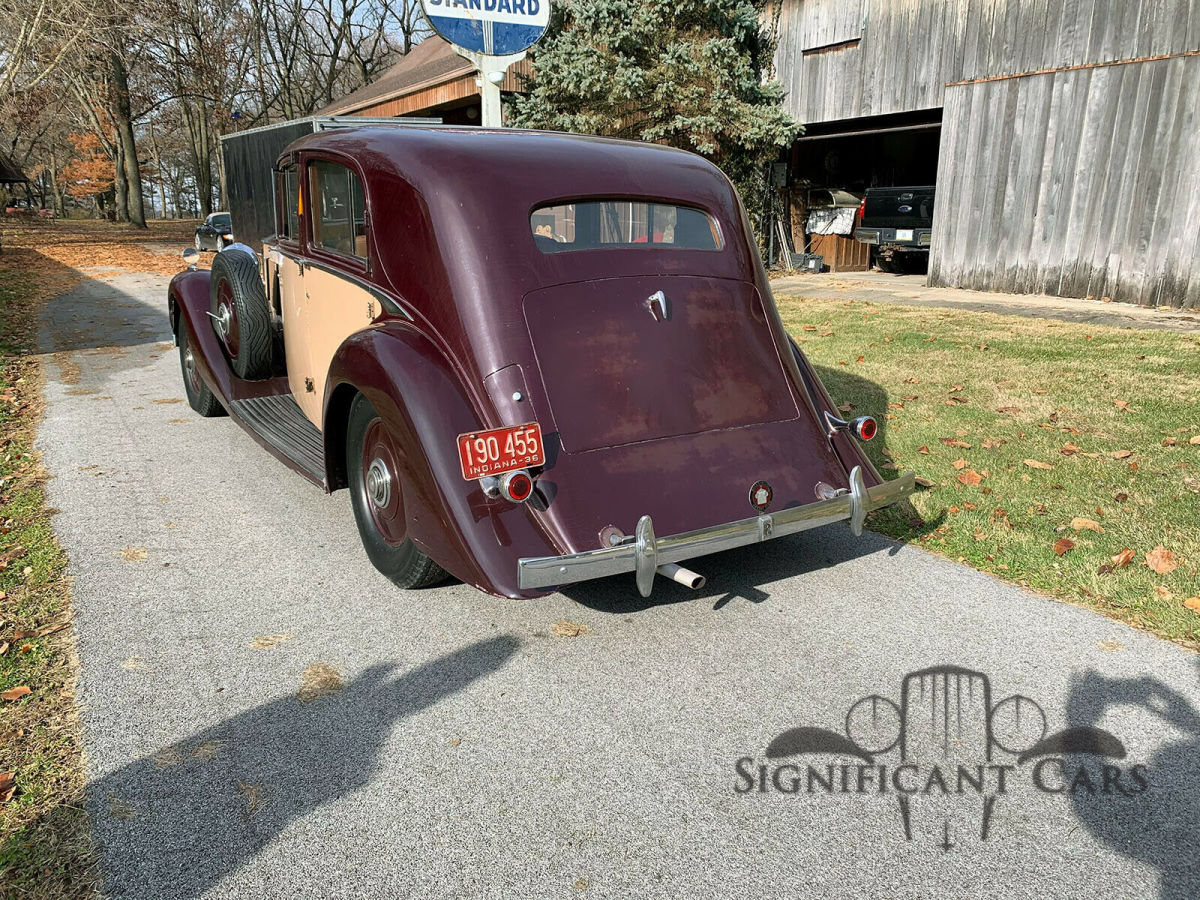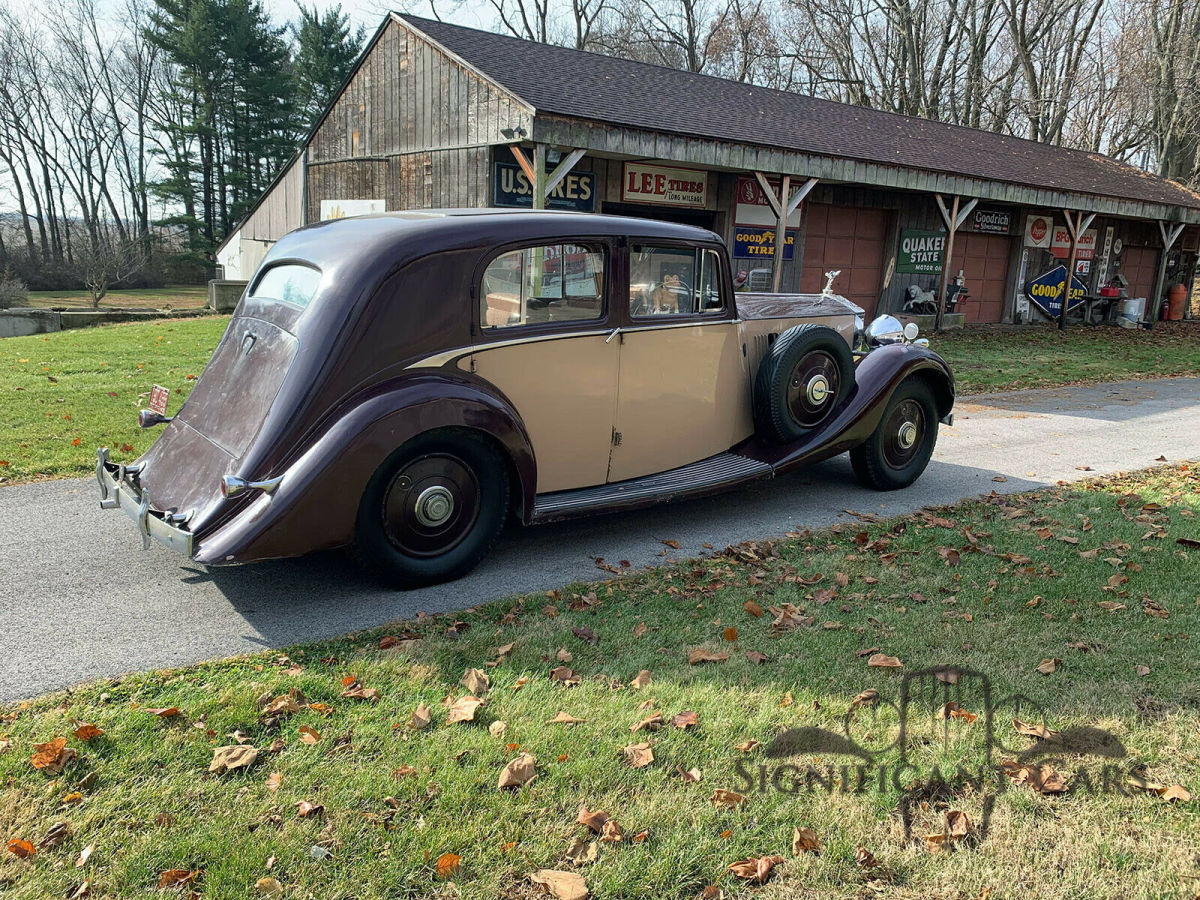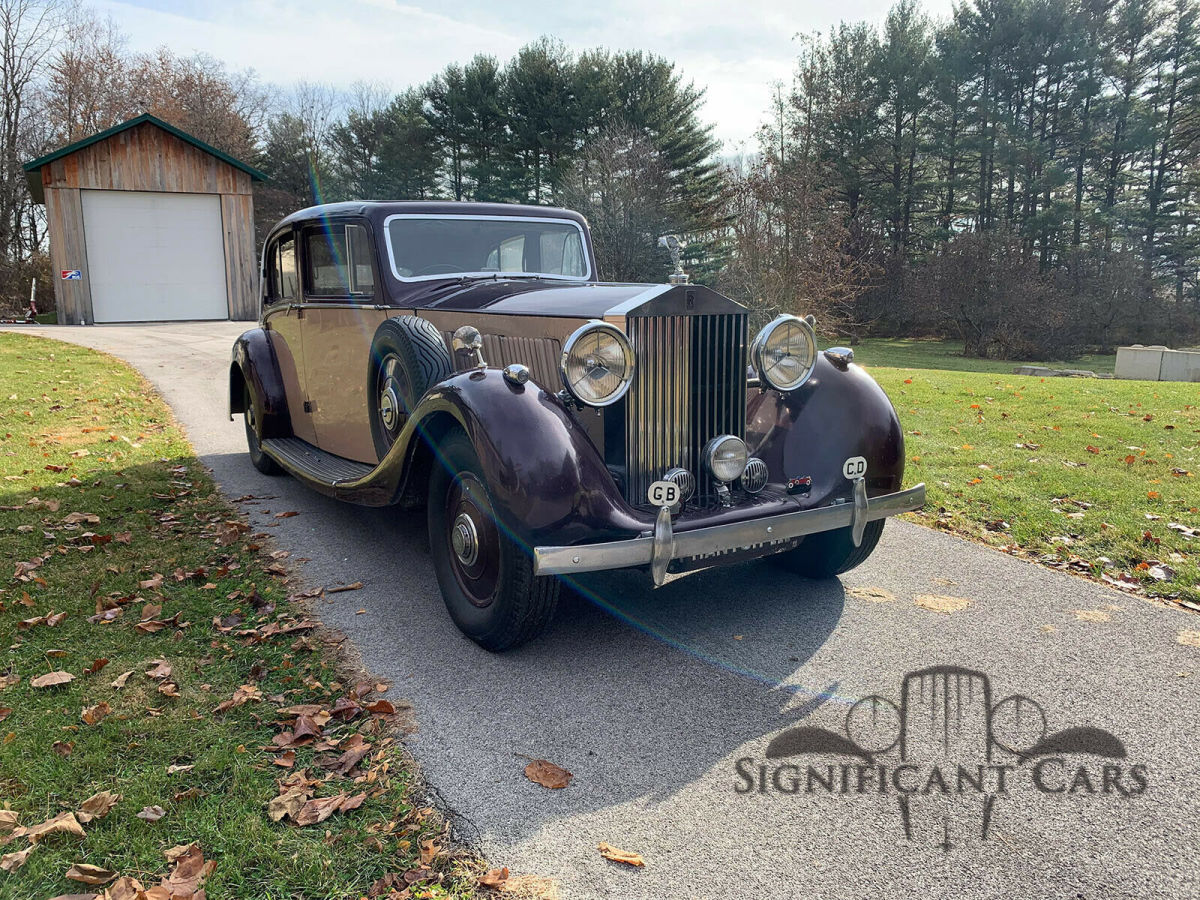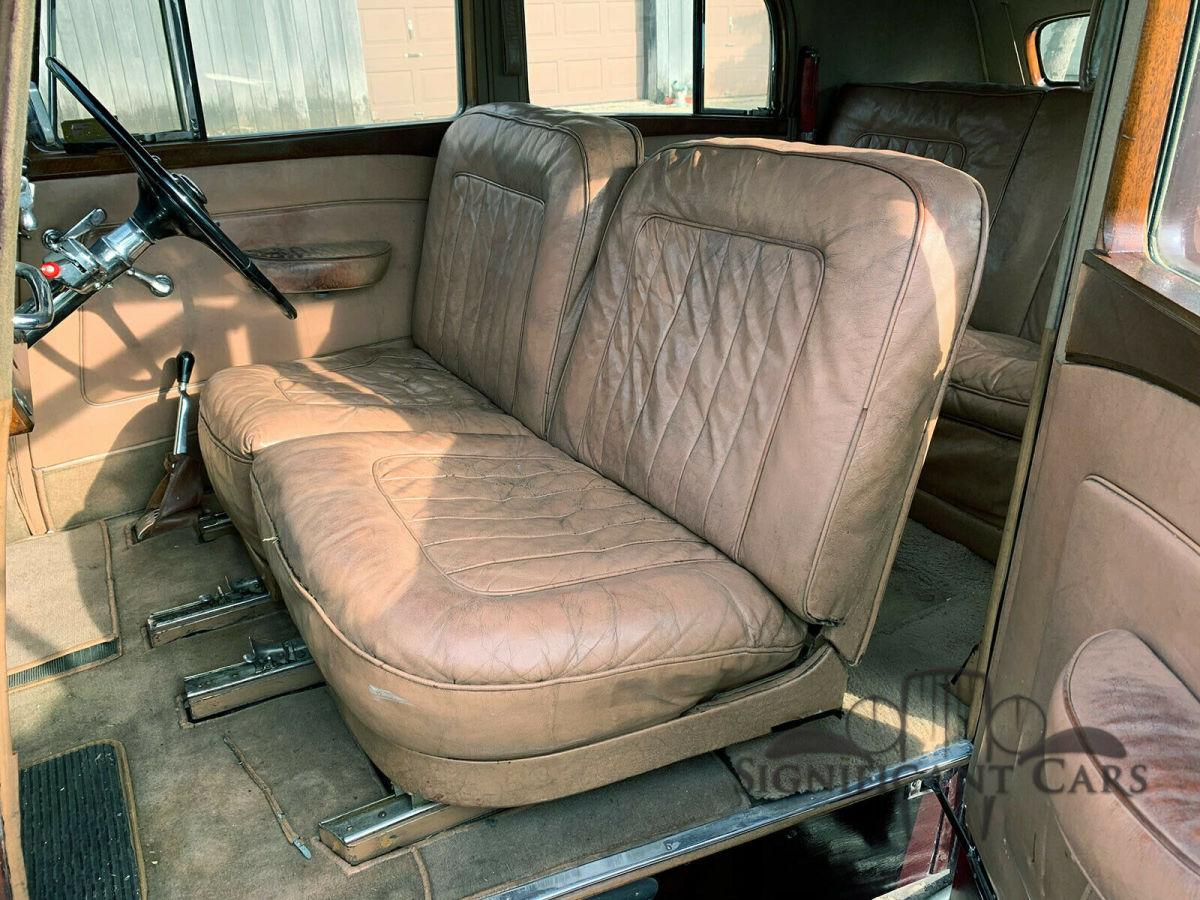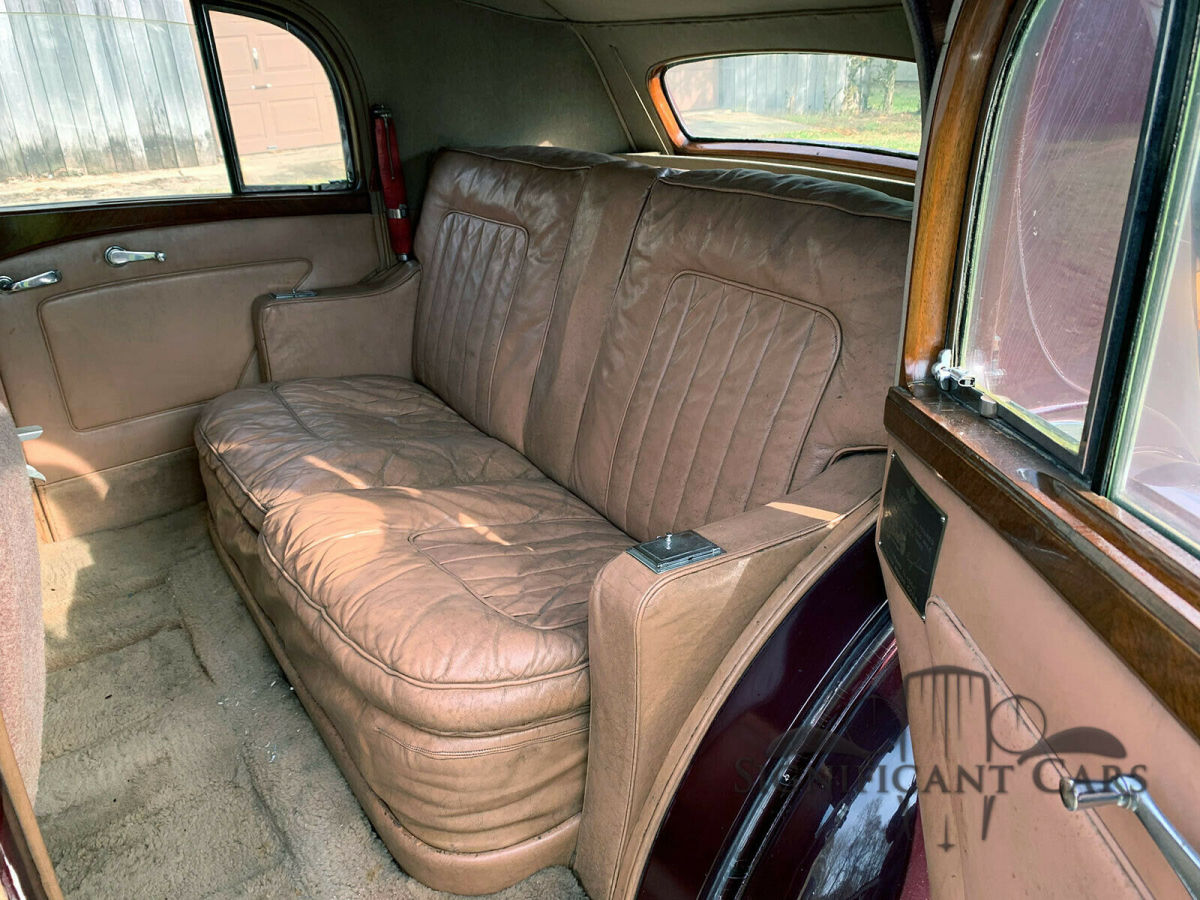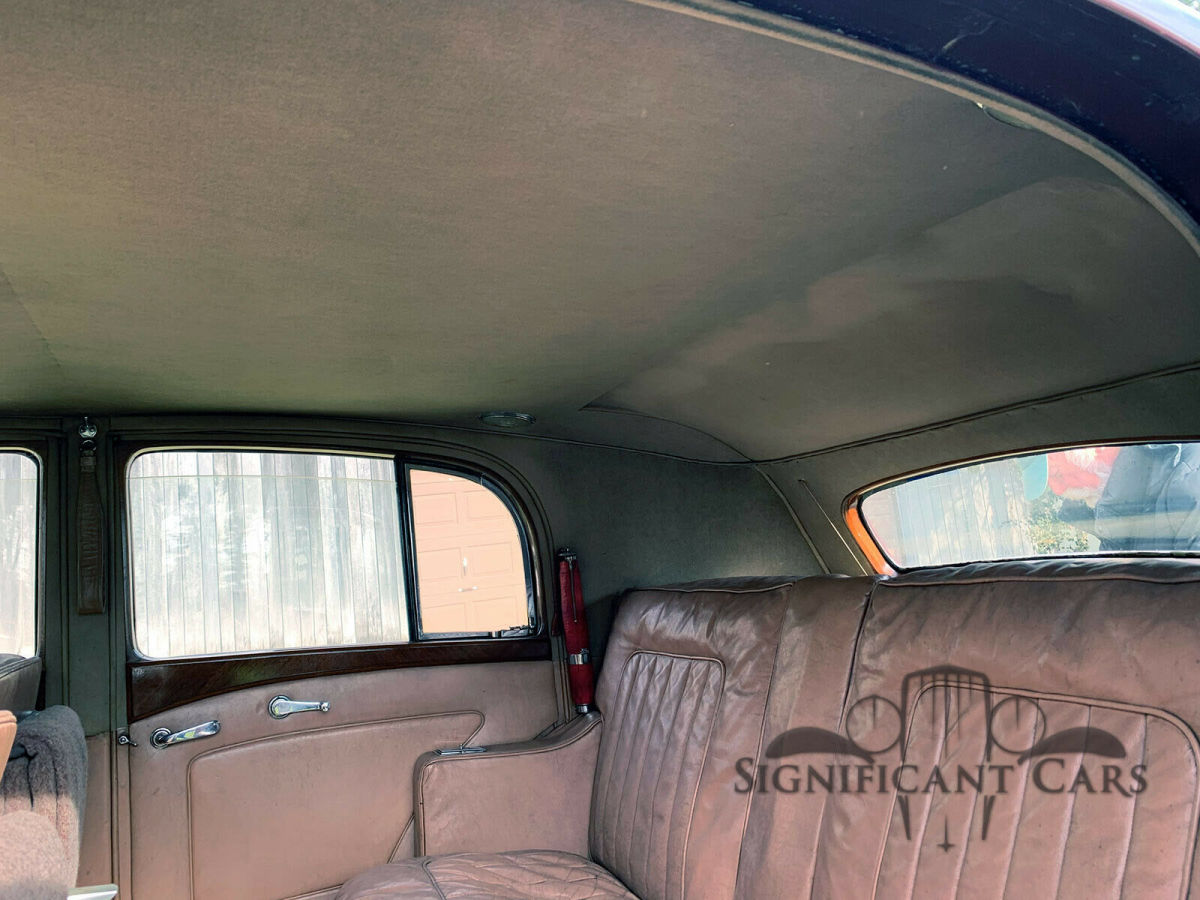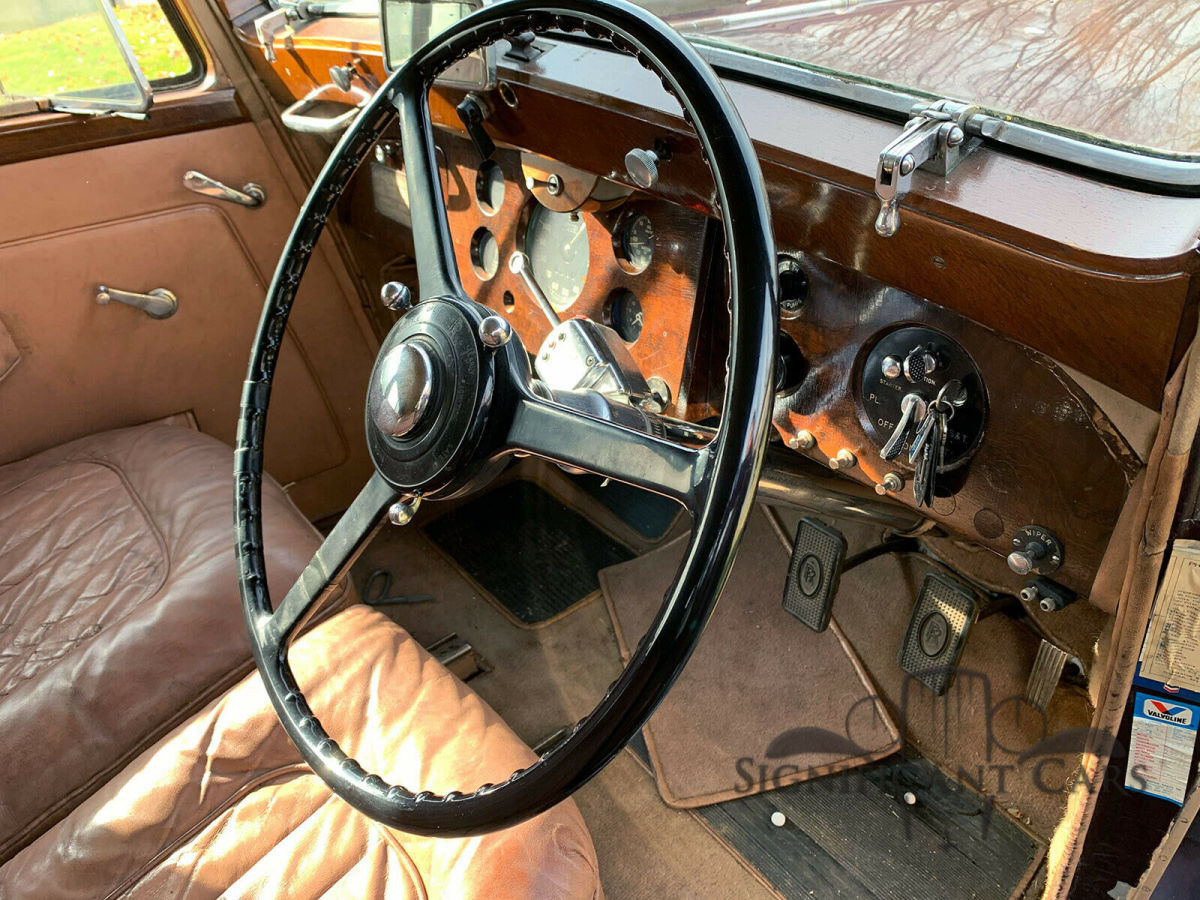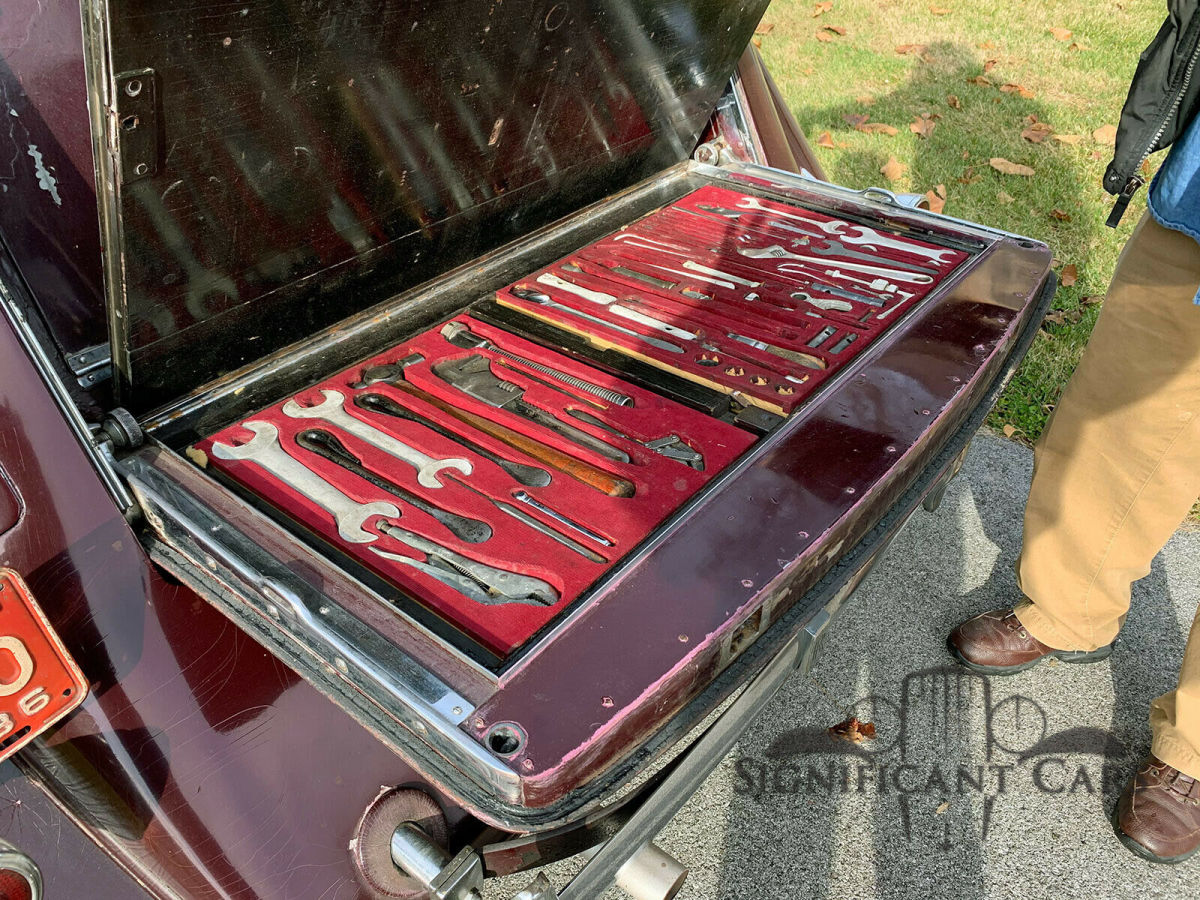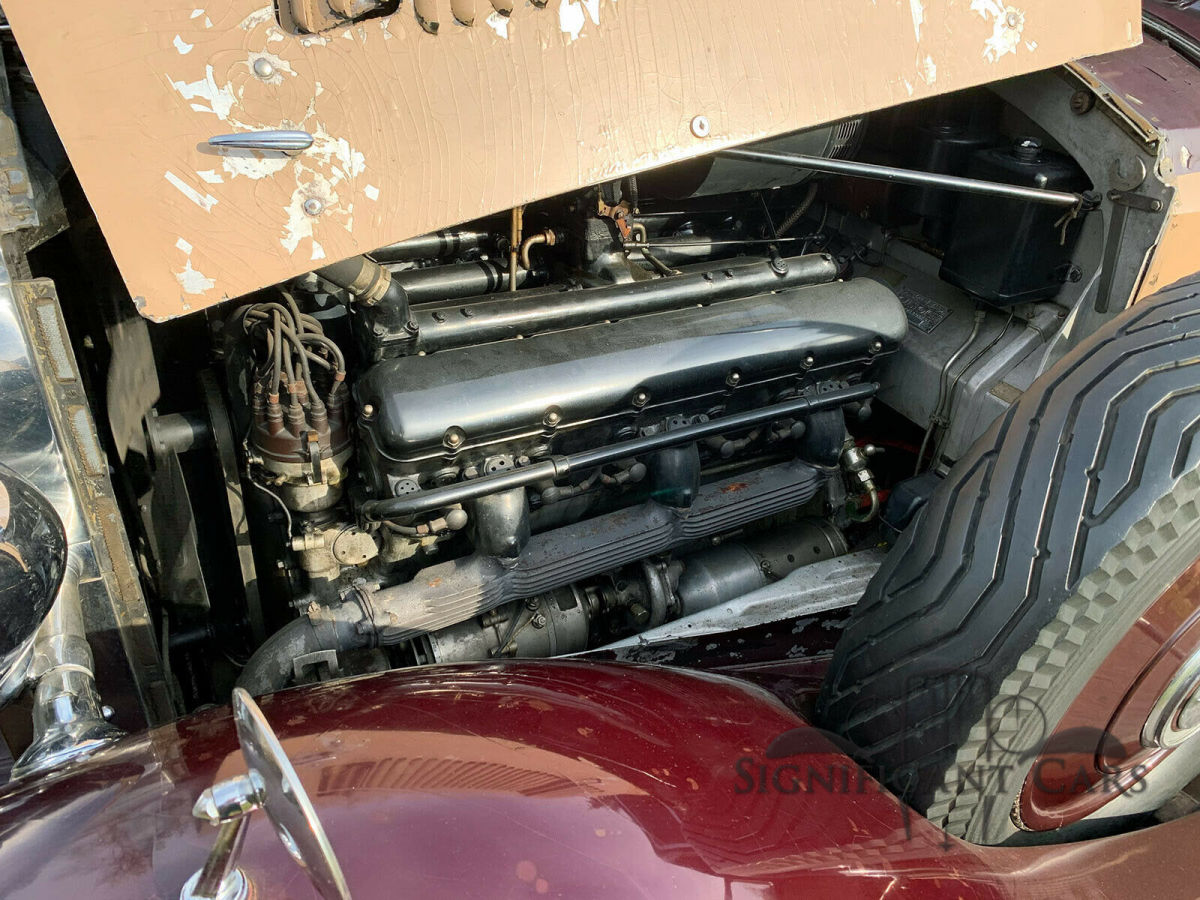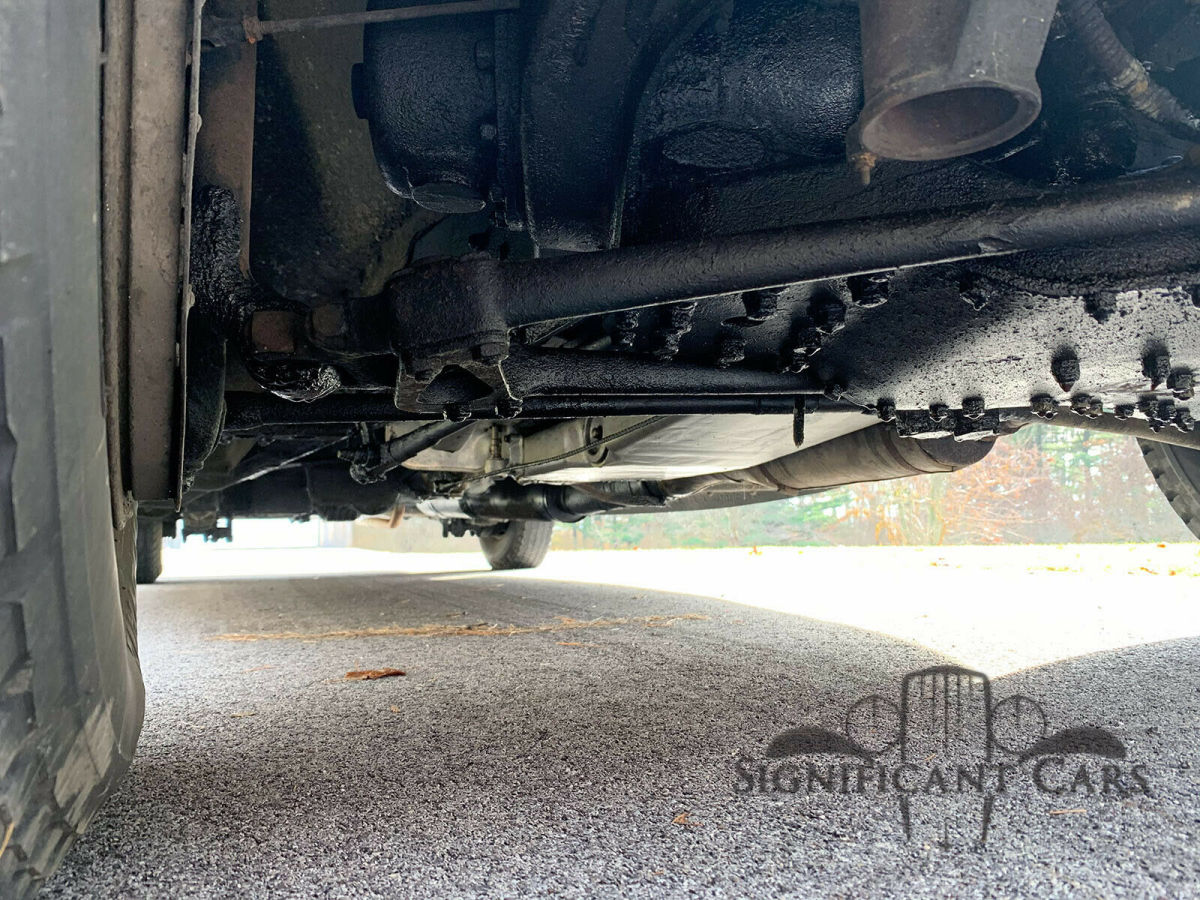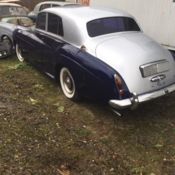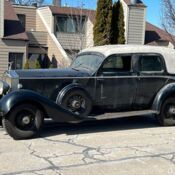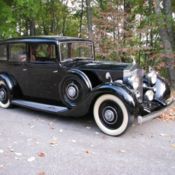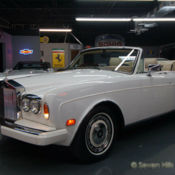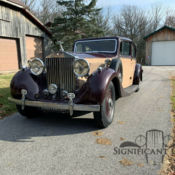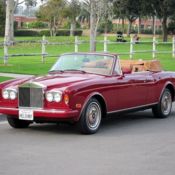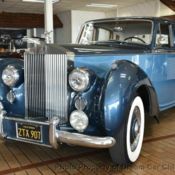Rare Sporting Coachwork V12 Known History Excellent Runner!
| Condition: | Used |
| Make: | Rolls-Royce |
| Model: | Phantom |
| SubModel: | III Sports Saloon by Barker |
| Type: | Sports Saloon |
| Trim: | Phantom III Sports Saloon by Barker |
| Year: | 1938 |
| Mileage: | 80000 |
| VIN: | 3 bt 53 |
| Color: | Maroon / Tan |
| Engine: | V12 |
| Cylinders: | 12 |
| Transmission: | Manual |
| Interior color: | Tan |
| Vehicle Title: | Clean |
| Item location: | Indianapolis, Indiana, United States |
| Extras |
|
Leather Seats |
| Listed by | Private seller |
Description of 1938 Rolls-Royce Phantom Phantom III Sports Saloon by Barker |
|
View our eBay StoreSign up for our Newsletter 1938 Rolls-Royce Phantom III Sports Saloon by Barker Offered as a buy-it-now. Make us an offer! This stunning example has a known history from new having been initially delivered to Frederick Brant Rentschler (1887-1956), an aircraft engine designer, aviation engineer, and industrialist. As President of Wright Aeronautical Corp, he championed air cooled engine design. Finding no interest among the mostly Financial types on the Wright board, he left and developed a a proposal for a high powered air cooled aircraft engine for the US Navy. Gaining a promise of approval, he approached Pratt and Whitney Corp who agreed to fund its development-creating the Pratt and Whitney Aircraft Company, of which he was given a controlling interest. In 1928, He the formed the United Aircraft and Transport Corp-the predessor to United Aircraft (later United Technologies). In 1929 He ended his association with Pratt and Whitney Tool Co but was allowed to retained the Pratt and Whitney Aircraft Co name. He ran the firm for the rest of his working life, developing many successful aircraft engines, helicopters, and jet engines after WWII. Mr Rentschler used the car at his Winter home in Florida. We have many more photographs of this car, please click on any image to be taken to our full-size image list! The Rolls-Royce Phantom III was the final large pre-war Rolls-Royce. Introduced in 1936, it replaced the Phantom II and it was the only V12 Rolls-Royce until the 1998 introduction of the Silver Seraph. 727 V12 Phantom III chassis were constructed from 1936 to 1939, and many have survived. Although chassis production ceased in 1939 (with one final chassis being built in 1940), cars were still being bodied and delivered in 1940 and 1941. The very last car, though the rolling chassis was completed in 1941, was not delivered with a body to its owner until 1947. The Phantom III was the last car that Henry Royce worked on - he died, aged 70, a year into the Phantom III's development. The III is powered by an aluminium-alloy V12 engine of 7.32L, having a bore of 3.25 inches and a stroke of 4.5 inches. It is a pushrod engine with overhead valves operated by a single camshaft in the valley between the cylinder banks. Early cars had hydraulic tappets or, rather, a unique system of eccentric bushings in each individual rocker that was actuated by a small hydraulic piston; the eccentric bushing ensuring zero valve-lash at the rocker/valve interface. This system was changed to solid adjustable tappets in 1938. The Phantom III is unusual for its twin ignition systems, with two distributors, two coils and 24 spark plugs. Petrol is provided by a twin SU electric pump. Wire wheels are fitted as standard, but many cars carry Ace wheel discs which were fitted to improve cosmetics and to reduce the time taken to clean the wire wheels after use. The car features on-board jacking and a one-shot chassis lubrication system, operated by a lever inside the driver's compartment. Independent front suspension by a coil spring-based system is complemented by a carryover semi-elliptical spring unit in the rear. The car has a 4-speed manual transmission with synchromesh on gears 2, 3 and 4. An overdrive gearbox was added in 1938,the ratio change being contained in the gearbox rather than in a separate unit. The car has 4-wheel servo-assisted brakes applied by cable (using a servo made under licence from Hispano-Suiza). The radiator shell is of Staybrite steel. The sheer bulk of the car is reflected in its performance figures. An example tested in 1938 by The English Autocar magazine returned a top speed of 140 km/h (87½ mph) and a 0 - 60 mph (0 – 96 km/h) time of 16.8 seconds. The overall fuel consumption quoted from that road test was 28 litres per 100 kilometres (10 mpg imp; 8.4 mpgUS) Our Ebay Policies: Significant Cars is one of the largest Collector Car Brokers and Dealers in the Country. Since 2003 we have worked hard to "change the way collector cars find new homes" by providing unparralleled web presentation of the cars we are representing. Most of our cars have over 30 photographs, and these can be viewed by visiting our website (our eBay handle dot com), or by clicking on any of the photographs in the black background area of our EBay listings. We welcome your call with any questions about any of our listings at anytime at 800-837-9902 and certainly encourage your personal inspection of any of the cars we are selling-just call us and we will be happy to set up an appointment for your to see and test drive the car. We realize that eBay is a difficult venue to properly evaluate an item as complex as an automobile. You can feel secure bidding with confidence on any of our cars since we guarantee your satisfaction! Should you win the auction and come to see the car and decide you do not want it for any reason, no negative feedback will result, any deposit you may have paid will be cheerfully refunded. Description images and copy © Significant Cars, Inc. |
 Home
Home Contact us
Contact us NEWEST CARS
NEWEST CARS SELL YOUR CAR
SELL YOUR CAR FAQ
FAQ